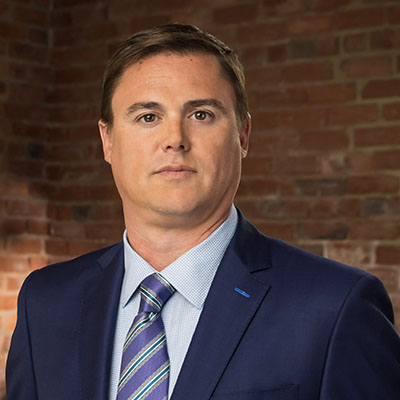We live in a fast-paced world. Whether it’s working overtime, staying up late to finish a project or socializing with friends, studies suggest that long days and restless nights are common for most of us. The National Sleep Foundation (“NSF”) estimates that millions of Americans suffer from “self-imposed sleep deprivation.”[1] Everyone knows that sleep-deprived drivers create serious and potentially deadly car accidents on America’s roadways. A lesser known fact is that fatigued driving has reached almost epidemic proportions in today’s society.
The NSF survey reveals that 36 percent of Americans drive drowsy or fall asleep behind the wheel.[2] Similarly, a 100-car nationalistic driving study conducted by the Virginia Tech Transportation Institute shows that fatigue is a cause of 20 percent of motor vehicle crashes.[3] The U.S. Department of Transportation Federal Motor Carrier Safety Administration (“FMCA”) estimates that 13% of Commercial Motor Vehicle drivers were considered to have been fatigued at the time of the crash.[4] When translated into numbers, these percentages are shocking. Conservative estimates of the National Highway Traffic Safety Administration suggest that sleep deprivation causes roughly 100,000 police-reported accidents which result in 71,000 injuries, 1,550 fatalities and $12.5 billion in monetary losses on America’s roads and highways every year.[5]
Sleep deprivation impairs performance and alertness and results in memory and cognitive impairment, all of which impact the ability to drive safely. In fact, sleep research shows startling similarities between the performance of people who are fatigued and those who are intoxicated. Someone who has been awake for 24 hours performs at the same level as someone who has a .10 percent blood alcohol content – high enough to qualify as a drunk driver in all 50 states.[6] Accidents happen in a matter of seconds. On the road, a fatigued driver’s lapse in attention or reaction time can be the difference between life and death.
These numbers clearly show that fatigued driving is a serious problem for American motorists. Unfortunately, Virginia does not have a criminal statute that specifically addresses sleep-deprived driving.[7] Thankfully, the FMCSA has promulgated regulations that restrict commercial drivers from driving more than fourteen consecutive hours.[8] Regulations such as this “14 hour rule,” help to ensure that tractor trailer drivers are alert and fit to drive before they get behind the wheel. Failure to abide by this regulation subjects tractor trailer drivers to negligence claims and opens up the possibility for punitive damage awards in civil cases.[9]
If you or a loved one is injured by a fatigued driver, proving sleep deprivation can be difficult. While a blood alcohol test will show whether a driver was drunk, skid marks can be used to establish that a driver was speeding and phone records will reveal if a distracted driver was texting or making a call prior to an automobile accident, sleep deprivation is a personal and often fleeting state of mind that leaves no permanent record behind. When a sleep deprived driver causes an accident, thorough and diligent investigation is essential. In lieu of criminal penalties, civil suits for negligence and the possibility for a punitive damage award may be an injured person’s only avenue to justice.
While we wait for the legislature to enact criminal statutes governing sleep deprived driving, and before another tragic accident occurs, the Department of Transportation has published 6 excellent tips to avoid driver fatigue:[10]
1: Get enough sleep before getting behind the wheel
2: Maintain a healthy diet
3. Take a nap
4. Avoid medication that may include drowsiness as a side-effect
5. Recognize the signals and dangers of drowsiness
6. Do not rely on ‘alertness tricks’ to keep you awake
Following these basic guidelines makes the roadway safer for all Virginians.
About the Author: Christopher J. Toepp is a Fredericksburg, VA personal injury lawyer dedicated to helping people who have been injured by the negligence of others. He is experienced in handling personal injury cases involving car crashes. Chris works in the Fredericksburg, Virginia office of Allen & Allen and serves clients across Northern Virginia and Central Virginia.
[1] The NSF’s complete survey can be found at: https://sleepfoundation.org/excessivesleepiness/excessive-sleepiness-home .
[2] Id.
[3] An article detailing Virginia Tech’s study can be found at: https://vtnews.vt.edu/articles/2013/04/041513-vtti-fatigue.html .
[4] “The Large Truck Crash Causation Study” authored by the FMCA and sponsored by the DOT can be found at: http://www.fmcsa.dot.gov/facts-research/ research-technology/ analysis/FMCSA-RRA-07-017.htm .
[5] See http://drowsydriving.org/about/facts-and-stats/ .
[6] This comparison comes from an NBC news report on fatigued driving. The full report is available at: http://www.nbcnews.com/id/39214056/ns/us_news/t/driving-while-tired-safety-officials-are-slow-react-operator-fatigue/ .
[7] For a summary of current legislation regarding sleep deprived driving visit: http://www.ncsl.org/research/transportation/summaries-of-current-drowsy-driving-laws.aspx .
[8] Commercial driving regulations related to sleep and time on the road are codified in 49 CFR § 395.3 which can be found online at: https://www.fmcsa.dot.gov/regulations/title49/b/5/3?reg=395.3 .
[9] Madison v. Acuna, 2919 U,S, Dist. LEXIS 176170 (Dec. 12, 2012; WDVA).
[10] For the complete article and to learn more about these tips visit the DOT’s website at: https://www.fmcsa.dot.gov/safety/driver-safety/cmv-driving-tips-driver-fatigue .




